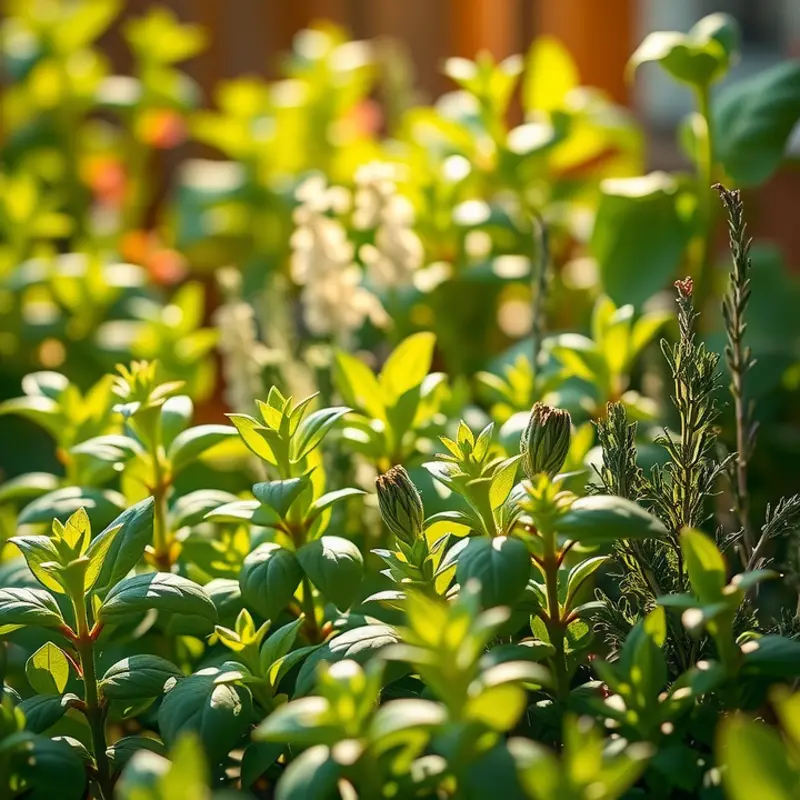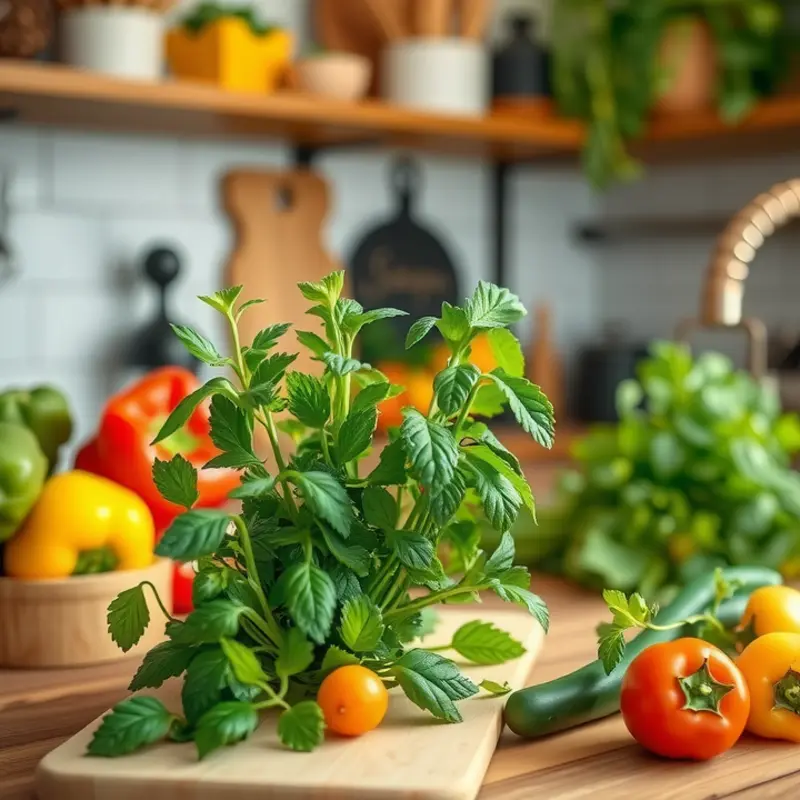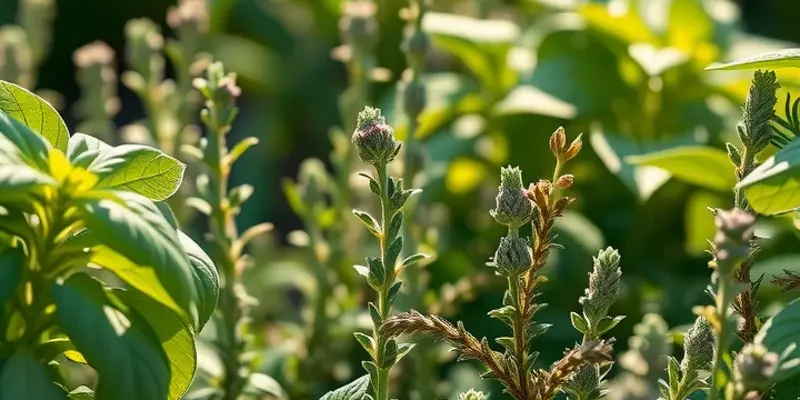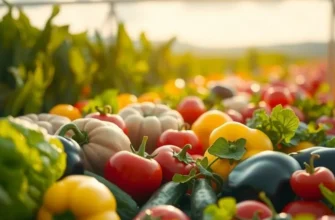Fresh herbs can elevate any dish, imparting vibrant flavors and enticing aromas. However, keeping them fresh during cooking can be a challenge. This guide reveals simple methods to ensure your herbs retain their vitality on your culinary journey.
Storing Herbs for Maximum Freshness

Preserving the freshness of herbs before they make their way to the culinary stage is crucial for any cooking endeavor. Different herbs have distinct characteristics that call for tailored storage methods to ensure they remain vibrant and flavorful.
Delicate Herbs
Basil, cilantro, and parsley are among the more delicate herbs that require proper care. These tender leaves benefit from gentle storage techniques to retain their freshness. Start by trimming the ends of their stems and placing them in a jar of water, similar to how you would treat fresh flowers. Cover the leaves loosely with a plastic bag and store them in the refrigerator, changing the water every couple of days. This method helps keep these herbs lively and ready for culinary use.
Sturdy Herbs
Thyme, rosemary, and sage boast sturdier structures, allowing for longer storage durations. For these herbs, the ideal method involves wrapping them in a slightly damp paper towel, then encasing them in a sealable plastic bag. Store in the refrigerator’s crisper drawer to minimize moisture loss, maintaining their essential oils and natural aromas. Notably, rosemary and thyme can also withstand freezing. Remove the leaves from their stems, place them in an airtight container, and store them in the freezer to be used directly in cooked dishes.
Leafy Varieties
Certain leafy herbs like mint and tarragon can be preserved through more creative methods. Blanch the leaves briefly in boiling water and then shock them in ice water to maintain their vibrant color and flavor. Once dry, they can be stored in the freezer, either in airtight containers or portioned into ice cube trays with a little water or broth, ready to be added to soups and stews. This technique not only preserves these fragrant herbs but also offers portion control.
Drying and Dehydrating
For those who wish to extend their herb bounty, drying or dehydrating is a valuable technique. Air drying works well for sturdy herbs, while delicate varieties benefit from dehydrators set at low temperatures to avoid flavor loss. Once dried, store them in airtight containers away from light and heat. This method ensures a long-term supply of flavor, perfect for cooking when fresh herbs are unavailable.
Eco-Smart Considerations
Choose storage solutions that align with eco-friendly practices. Reusable glass containers and silicone storage bags are sustainable options that reduce waste, aligning with principles of eco-smart kitchen storage. Implementing these practices ensures freshness and reduces environmental impact.
Each herb requires specific attention, allowing you to capture the essence of their aroma and flavors in your dishes. Tailoring your storage techniques to the nature of the herb maximizes their potential and enhances the quality of your culinary creations.
In-Cooking Tips to Maintain Herb Freshness

Incorporating fresh herbs into your dishes can elevate flavors and add a vibrant touch to your culinary creations. However, maintaining their freshness requires precision and care. Using these practical techniques will ensure that your herbs not only retain their freshness but also impart maximum flavor.
Timing is Everything
When adding herbs to your dish, timing is crucial. Hardy herbs like rosemary, thyme, and oregano benefit from being added during the cooking process. Their robust flavors withstand heat and release gradually, enhancing the overall taste of long-simmered dishes. In contrast, delicate herbs such as parsley, basil, and cilantro should be added towards the end of cooking or as a garnish. These herbs provide fresh aroma and flavor that can be lost if exposed to heat for too long.
Chopping Techniques
Properly chopping herbs is another method to preserve their essence. For hardy herbs, use a fine chop to disperse their robust flavor throughout the dish evenly. When it comes to delicate herbs, a rough chop or tearing them by hand helps maintain the integrity of their leaves, preserving essential oils and freshness. Remember, a sharp knife prevents bruising and oxidation, keeping the herbs vibrant and flavorful.
Storage for Leftover Herbs
After utilizing herbs in your cooking, efficiently storing leftovers is key to retaining their freshness. For hardy herbs, consider wrapping them in a damp paper towel, placing them in an airtight container, and storing them in the fridge. This method helps maintain moisture and slows down wilting. Delicate herbs can be stored using the same damp paper towel method or alternatively, placed with stems in a small glass of water, covered loosely with a plastic bag, and refrigerated. This technique resembles a miniature herb bouquet that can last up to a week.
Freezing is an excellent long-term solution for preserving herbs. Chop and place them in ice cube trays, covering with olive oil or water before freezing. These handy herb cubes can be dropped directly into soups, stews, or sauces, providing a burst of flavor with minimal effort. For more insights into efficient kitchen storage, you might find eco-smart kitchen storage tips helpful.
By thoughtfully integrating these practices, each herb will contribute its unique character to your dishes while maintaining freshness. Understanding these nuances in herb usage ensures that your culinary creations are as flavorful as possible, allowing herbs to shine in each bite without overshadowing the intended dish’s profile.
Final words
Keeping herbs fresh during cooking is a vital step toward elevating your culinary skills. By mastering storage techniques and learning when to add herbs in the cooking process, you can bring out their best flavors and aromas. Don’t hesitate to experiment with different herbs and methods; the right combinations can transform your dishes from ordinary to exceptional. With practice, you’ll develop a knack for seamlessly incorporating fresh herbs into your cooking.







